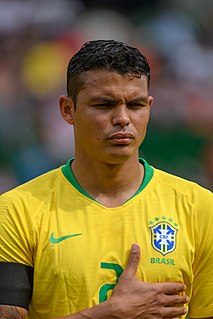A Quote by Stanley A. McChrystal
We need to defend against weaknesses within and enemies without, using the tools of civil society and hard power. We don't have to pick one over the other.
Related Quotes
No art takes places without inspiration. Every artist also needs effective knowledge of his or her tools (e.g., does a certain brush function well with a particular kind of paint?). What's more, artists need effective techniques for using those tools. Likewise, to express ourselves skillfully with maximum efficiency and minimum effort, we need to investigate the most effective ways of using the mind and body since, in the end, they are the only "tools" we truly possess in life.
For loving, working, and creative people to throw off the yoke of power it is necessary to abolish power itself, not merely to make the yoke comfortable. Where some have power, others do not, and the two classes persist. A free society is where all have power-power over and responsibility for their own lives, power and reason to respect the lives of others. This is also a society without classes, a society of human beings, not rulers and the ruled.
[T]here are, at bottom, basically two ways to order social affairs, Coercively, through the mechanisms of the state - what we can call political society. And voluntarily, through the private interaction of individuals and associations - what we can call civil society. ... In a civil society, you make the decision. In a political society, someone else does. ... Civil society is based on reason, eloquence, and persuasion, which is to say voluntarism. Political society, on the other hand, is based on force.
A famous, very often quoted phrase says: "That government is best, which governs least." I do not believe this to be a correct description of of the functions of a good government. Government ought to do all the things for which it is needed and for which it is established. Government ought to protect the individuals within the country against the violent and fraudulent attacks of gangsters, and it should defend the country against foreign enemies. These are the functions of government within a free system, within the system of the market economy.
Since the social victim has been oppressed by society, he comes to feel that his individual life will be improved more by changes in society than by his own initiative. Without realizing it, he makes society rather than himself the agent of change. The power he finds in his victimization may lead him to collective action against society, but it also encourages passivity within the sphere of his personal life.
Civil society people - these are the people - civil society groups are the people who need to monitor the aid to ensure that the aid is directed to what it is supposed to. And in order for them to do so, they need to have the space, they need to have the freedom, and they need to have the right to demonstrate, and to petition their government. They can't do that in Ethiopia; they can't do that in Eritrea; and so this is why I was cautioning that we may be repeating some of our old mistakes.
When you have a liberal class that no longer functions, when those people who traditionally defend and care about a civil society no longer do so, then you cede power to very frightening, deformed figures, all of which we are watching leap up around the fringes of our political establishment - this lunatic fringe, which has largely taken over the Republican Party.
Those who refuse to support and defend the state have no claim to protection by that state. Killing an anarchist or a pacifist should not be considered "murder" in a legalistic sense. The offense against the state, if any, should be "Using deadly weapons within city limits," or "Creating a traffic hazard," or other misdemeanor.




































